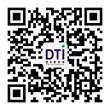EU LFGB food contact material certification for rice cookers
Date:2025-04-23 11:29:56 Classification
:【question】 Visits:
When rice cookers are sold in the EU market, if they involve materials that come into contact with food, LFGB certification is usually required. LFGB certification is the German Food and Daily Necessities Act. Although it originated in Germany, it is also widely recognized throughout the EU. Here are some key information about the EU LFGB food contact material certification for rice cookers:
1. Certification Scope
LFGB certification covers all materials that may come into contact with food, including but not limited to:
- Plastics
- Glass
- Ceramics
- Metals
- Rubber
- Paper products
- Wood
For rice cookers, parts that usually need to be certified include the inner pot, lid, sealing ring and other parts that come into direct contact with food.
2. Test Items
The test items for LFGB certification mainly include:
- Migration test: Test whether harmful substances in the material will migrate into the food.
- Sensory test: Evaluate whether the material will change the smell or taste of the food.
- Heavy metal test: Test whether the material contains excessive heavy metals such as lead, cadmium, etc.
- Organic compound test: Check whether the material contains harmful organic compounds, such as PVC, organic tin compounds, etc.
3. Certification process
The process of LFGB certification for rice cookers usually includes the following steps:
1. Application: Submit an application to the certification body and provide product-related information.
2. Sample preparation: Prepare the samples to be tested.
3. Test: The certification body conducts various tests on the samples.
4. Report: After the test is completed, the certification body will issue a test report.
5. Certification: If the test results meet the LFGB standard, the product will be LFGB certified.
4. Certification mark
Products that have passed LFGB certification can use the LFGB logo on the packaging or the product itself. This logo is usually a knife and fork pattern, indicating that the product meets the German food contact material safety standards.
5. Importance of certification
- Market access: Products that have obtained LFGB certification are more likely to enter the EU market, especially the German market.
- Consumer trust: LFGB certification can enhance consumer trust in products and improve the market competitiveness of products.
- Legal compliance: Ensure that products comply with EU and German food safety regulations to avoid legal risks.
6. Related costs
The cost of LFGB certification varies depending on the certification body and product type. It usually includes application fees, testing fees and certification fees. The specific fees need to be consulted with the certification body.
If you need further information or specific certification procedures, it is recommended to contact a professional certification body for consultation.




 Shen Gongwang Security: 44030602006947
Shen Gongwang Security: 44030602006947